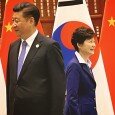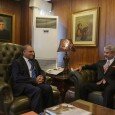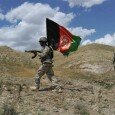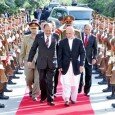By Faisal Raza Khan –
After U.S. withdrawal from Afghanistan, Pak-Russia close cooperation can ensure stability in Afghanistan and peace in the turbulent region
In a friction driven cold war, Pakistan became the part of U.S. backed alliances and lost Eastern part; when Soviet Union entered Afghanistan, Pakistan became part of other’s (Afghanistan’s) internal matter, but despite the part of alliances, Pakistan got nothing regarding security and economic strength?
In the end, westerners were winners, Pakistan and Soviet Union (Russia) lost their land mass, social fabric, economy, security and nothing apparently lies in favour of both. During the same era, Soviets continuously faced unrest, terror attacks and freedom struggles in many parts of her territory, beside economic and other internal reasons, Russia was wary of extremism, Afghanistan factor become more visible due to extremist regime (Taliban) in Kabul and Russians strongly believe that Kabul’s hard-line regime never sustain without Pakistan’s support.
This has given factual reason to Moscow to continue her defence relationship with India and alignment with the Northren Alliance, Pakistan’s support for the Afghan Taliban and by extension their Chechen and Uzbek associates and Pakistan’s post 9/11 alliance with the U.S. were main irritants during last decade.
It was during the same period, when self-nurtured baby of terrorism become monster, a huge challenge for whole world. It has a catastrophic impact on Afghanistan and Pakistan and badly ruined Russia and China but main battle ground remained Afghanistan. At this point in time, Pakistan and Afghanistan emerged as terrorist refuge and hideouts but both also became as leading counter-terrorism campaigners with sacrifices in terms of men and material.
When Afghanistan became a strong-hold of al-Qaida and its associates, Pakistan became the part of global campaign against terrorism. Pakistan’s decision to be on active war front, has caught up in countless disastrous consequences internally but it also led to Russia-Pakistan bonds to grow and more improvement came when apparently Pakistan adopted the policy of non-interference towards Afghanistan, regional approach to resolve Afghan crises, joint strategy to eliminate terrorism from the region and also advised all neighbouring and regional countries to assist Kabul for a peaceful, stable, prosperous and economically vibrant Afghanistan.
U.S. seemingly failed-policy towards region in general and Afghanistan is particular, NATO’s draw down, Indo-U.S. affection, Ukraine factor, Western embargos on Russia, changing military doctrine (green book), Pakistan’s commitment to end terrorism and build stable Afghanistan, Russian fear of rising Taliban entities, seriousness of non-repetition of 1996 episode, apparently, appeasing Kremlin while anti-terror campaign, anti-human smuggling, curbing drug trafficking and energy cooperation is of paramount feature in Moscow-Islamabad relations, which favours both.
Dr. Stephen Blank, fellow at the American foreign policy council, former Douglas MacArthur Professor of Soviet studies and Russian national security studies at the U.S. army war college once said, “as the NATO-led International Security Assistance Force (ISAF) and the US Forces – Afghan command, is planning to depart Afghanistan, the Russian Federation came to a conclusion that Pakistan is a crucial player in Afghanistan and that, as NATO withdraws, it becomes all the more urgent for Moscow to seek Islamabad’s support”.
Multiple regional and international factors provided enough reason to Moscow to become closer to Beijing’s all-weather friend ‘Islamabad’. During Musharraf’s era, Russia vowed its support for Pakistan’s fight against the Taliban militants and in the same spirit Prime Minister Mikhail Fradkov visited Islamabad in 2007, to have “in-depth discussions” with Pakistani leadership.
Since then, civil and military leadership of Pakistan put maximum focus upon Russia and the sea change scenario becomes more visible when first in 2010, then Prime Minister of Russia Vladimir Putin stated that Russia was against developing strategic and military ties with Pakistan because of strategic ties with India but later in 2010, Pak-Russia Inter-Governmental Commission (IGC) formed and its first meeting held.
During 2011, Russia entirely changed its policy and Putin endorsed Pakistan’s bid to join Shanghai Cooperation Organization (SCO) and termed Pakistan as a very important partner in South Asia and in Muslim world for Russia. After belligerent NATO attack on Pakistani check post at Salala, which resulted in sacrifices of many Pakistani soldiers, Russia termed it unacceptable to violate the sovereignty of a state, even when planning and carrying out counter-insurgent operations.
In 2012, Russian president Vladimir Putin announced to pay a state visit to Pakistan soon after his re-election, later he cancelled it, citing other crucial engagements including no substantial agreements to offer but it was also regarded that visit cancellation was due to unavoidable Indian pressure and Putin sent his Foreign Minister Sergey Viktorovich Lavrov to take Pakistani leadership in confidence.
Pakistan and Russia initiated their first strategic dialogue in August 2013, which laid an institutional framework for building closer bilateral relations through discussions for shared objectives and next rounds were held. Since the first strategic move, Pak-Russian military and intelligence agency chief’s paid several bilateral visits, which were not only beneficial for two-pronged defence cooperation, military to military ties, strategic stability in Afghanistan especially in post 2014 scenario but also paved the way for greater engagement in all fields while both militaries decided to have separate maneuvering of defence collaboration alongside Inter-Governmental Commission (IGC).
On 20th November 2014, Russian Defense Minister General Sergey Shoigu visited Pakistan and became second Russian Defence Minister to visit after 1969, but at that time, visit was to ease tensions between Pakistan and India but now when Line of Control (LoC) and Working Boundary (WB) are already at red-hot scale and Chief of Army Staff General Raheel Sharif was on U.S. visit, signing of a Pakistan-Russia bilateral defence cooperation agreement, a worrying sign for India and positive move for Pakistan.
Russia is a huge arms and ammunition supplier to India but as recently Delhi moved its attention towards Israel, France, Britain and the United States and in search of more sophisticated equipment westerly influenced India is also reluctant to fulfill already accomplished defence agreements with Moscow, these maneuvers made Russians annoyed and straight way offered Pakistan Mi-35 attack helicopters for counter-terrorism and counter-narcotics purposes, give assistance in overhauling and technology driven upgrades of existing Mi-17 helicopters, uninterrupted supply of JF-17 thunder engines to China, supply of Tiger Armoured Vehicles (TAV) and others are on cards.
Recently held, third IGC in Moscow (26th-28thNovember 2014) termed into a catalyst to enhance cooperation in the fields of trade, economic, commercial, scientific and technical cooperation and education. Russia and Pakistan signed US$1billion credit facility for enhancing production and expansion of Pakistan Steel Mills (PSM). Russia agreed on provision of technical and material support for enhancing energy production and efficiency, show interest in developing Thar Coal Project, Seismic data sharing, research, investing in huge reservoirs and dams.
Both countries are vigorously negotiating several agreements and most of them are at finalization stage like Free Trade Agreement (FTA), currency swap, science and technology cooperation, liberal visa regime, counter-terror assistance and other areas while eager to enhance bilateral trade volume from current $600 million to $1 billion in next decade,
Along with China and Tajikistan, Russia is also a strong supporter of Pakistan’s inclusion in Shanghai Cooperation Organisation (SCO) and next year Pakistan will hopefully get much desired permanent status. Russia is currently financing mega energy project with US$500million, Central Asia South Asia (CASA) -1000 grid and transmission lines, Turkmenistan-Afghanistan-Pakistan-India (TAPI) gas pipeline and other projects of regional connectivity while Russians are also interested in sharing mega infrastructure and communication projects with China and intends to explore Asian integration dreams.
There already an evolving strategic partnership between China and Russia for the promotion of regional peace and in order to undo the global hegemony of an outside power. So, in the same context, region is witnessing new alignments like U.S.-India bilateralism and China-Pakistan-Russia (CPR) troika, which could bring huge reflections in South and Central Asia, Indian Ocean and Pacific region.
There are international concerns that after NATO-U.S. draw-down, Afghan stabilization could be a gigantic question mark. But, regional analysts do not agree with this notion and have an opinion that if regional and neighbouring countries decide once for all to stabilize the region then it’s not much complicated as portrayed. The reason is that Russia’s old relationship with the Northern Alliance and influence with Iran; Pakistan’s influence with the Pakhtuns and the Afghan Taliban; and China’s financial and economic capacity can be a powerful combination to promote Afghan reconciliation and peace and on the other hand Moscow is also trying hard to have better Indo-Pak ties for better regional alliance.
Pakistan and Russia are now cooperating at international and regional centre stage, having little convergence on Syrian issue although Pakistan’s policy was bit dwindling earlier and Russia is also satisfied at Pakistan’s neutral policy towards Ukraine. Many quarters have exaggerated, Moscow-Islamabad engagement – newly tied knot but in reality, Edward Carr and Hans Morgenthau argued in their approach to realism, “states are self-interested, power-seeking rational actors, who seek to maximize their security and chances of survival”.
So, our politicians, policy makers, legislatures and bureaucracy must realize that this is just a start, Pakistan must have to bargain for national interests, gains and for close friendly relations, not for friendships, because no one is friend in comity of nations, it’s only the interest, which prevails.
The writer is a journalist based in Islamabad































































































